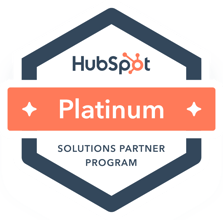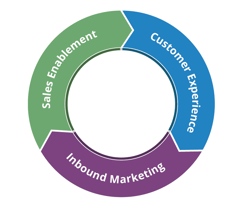Although social media platforms such as Facebook, YouTube, and Instagram receive much of the buzz around digital marketing, it's essential not to forget about SEO as part of your marketing efforts. Search engines such as Google, Yahoo, and Bing continue to drive most website traffic for organizations. This makes it essential for you to regularly perform search engine optimization (SEO) on all of your digital assets. It's not just a one-time project but needs to be continually optimized for your SEO to continue to benefit your marketing efforts.
Search engine optimization (SEO) refers to a set of marketing rules that focus on expanding the visibility of your website and content in the organic search (unpaid results) of major search engines. It's real people finding your website based on searching for helpful content, and clicking on your links to see how your website can help answer the question they are seeking answers for at that exact time.
SEO consists of technical and creative elements, including the keywords you choose to help people find your website, the way other websites link to you, how fast your website loads, and much more. Effective SEO drives traffic to your website, improves your rank in search results, and increases brand awareness. Let's review five of the most essential elements for formulating a successful SEO strategy to ensure that your target audience can find you online.
1. Develop Your Technical SEO Plan
SEO strategies have evolved significantly over the last decade. It is no longer sufficient to select a few keywords and load them into a web page's code. Today, a comprehensive SEO strategy outlines the goals you expect to achieve through organic search and documents, in detail, basic SEO elements that need to be present on each and every page, including Page Title, Meta Description, H1 Tags, Alt Text image, Body Content, Links & more. Your SEO plan should contain short-tail keywords, long-tail keywords, and branded keywords that bring in your target audience. Your plan should also focus on profiling your personas to find out what they are searching for and what your competitors are doing online, so you can overcome the competition through a comprehensive SEO strategy.
2. Build Your Keyword List
The core of your SEO strategy revolves around the keywords you choose for your website, social posts, guest blogs, and more. You will use your keywords to optimize for search engines and create different web pages across your entire marketing strategy for a consistent brand experience. Review your list of target keywords and goal keywords (keywords you hope to rank on in the near future) every month, and modify and add new keywords to stay on top of search and industry trends. It's essential to use marketing software, like HubSpot or Google Analytics, to continually track keywords to see how you're ranking over time. This will help show you what needs to be changed or maintained in your SEO strategy.
3. Create High-Quality Content
Even if you master all of the technical components to search engine optimization, you must have high-quality, relevant content on your website. This content will not only help your website rank well, boost engagement, and bring customers through your marketing funnel, but it will give your pages improved bounce rates (meaning visitors will stay on your website longer). Content comes in many types and channels, including:
- Articles
- Blogs
- Videos
- Landing pages
- Podcasts
- Webinars
- Whitepapers
You can also read our blog on content types that you can use to create a variety of great content for your brand.
4. Focus on Strategic Link-Building
Your ability to attract external links to your website plays a vital role in how search engines rank your website. Arguably, link-building may be the most challenging and time-consuming task in the SEO process. Some strategies for obtaining external links are sharing links with thought leaders to share with their network and guest blogging on other websites. The best way to organically build external links is to produce original, in-depth content that other websites will want to reference and link to in their content. This makes your website credible and boosts your SEO ranking. Focusing on this as a weekly initiative will help you maintain a consistent link-building strategy.
5. Optimize Based on Metrics and Conversion Rate
As a final step in the process, you absolutely must measure and track multiple metrics to determine the effectiveness of your SEO efforts. Evaluate and analyze important pages on your website to determine where your visitors make initial contact with your website and potential obstacles to higher conversion. Using HubSpot, you can track a page's performance utilizing the Page Performance tool. This will help you see how traffic is driven to that page and converted into new leads and customers.
Here's a quick explainer video that also helps to describe SEO tactics and the overall importance of search engine optimization to your marketing strategy.
If you're looking for a list of things you should consider reviewing on your website, you can download our 50 tips for your website and SEO strategy. This also includes tips for an international brand to help make your SEO friendly to a global audience. You can also check out our blog on building an online marketing strategy to see how SEO is part of the overall digital strategy.







.png?width=250&name=diamond-badge-color%20(1).png)
